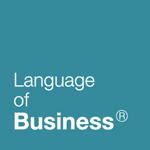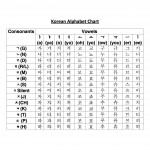Minding their ABC’s, as a South Korean national holiday…
As an avid supporter of languages, I can’t help but give a nod to South Korea for observing a national holiday in honor of Hangul (Korean Alphabet) Creation Day. The alphabet is 한글 in South Korea, and called 조선글 in the North. According to the Economist, in the South it was voted off the books in 1991 but came back in 2013. This is a great summary from the Official Korea Tourism website (where we got the photo above). It’s great to see so much pride not only in South Korea but also in the France’s attention to detail in terms of the preservation of their lingua franca (pun intended). Even the Japanese are in on-the-action, with a (fairly) new word for a 3-day weekend, much as we’re celebrating in the US for the Federal Holiday of Columbus Day: 年休 and 有休 depending on formality.
Economist Article on Korean Hangul Holiday
Good blog entry on the South’s celebration of 블프 (Beulfe) or Black Friday. Unfortunately all didn’t go as planned in 2015, per this article from the Korea Times.
Read here for how the French are trying to preserve their language, and even the NY Times got into the discussion.
Finally, for anyone who wonders what Hangul looks like, here’s some text, courtesy of Modern Seoul’s web site. Click on the photo below for a neat graphic, as well.
Here’s the text based definition, too, courtesy of the web site Walk, Eat, Speak:
Hangul is made up of 24 basic sounds (not including diphthongs): 14 consonants and 10 vowels.
In Hangul, all words usually follow 3 basic rules:
1. A syllable begins with a consonant, e.g. “N”
2. A syllable has at least 1 consonant and 1 vowel, e.g. “n”+”o”= syllable
3. Each syllable gets written in a square box. Tip: Having a Primary/ Elementary school maths copy to practice writing is super helpful, as you get used to writing you’ll no longer need the visual help of having the box to write in.





